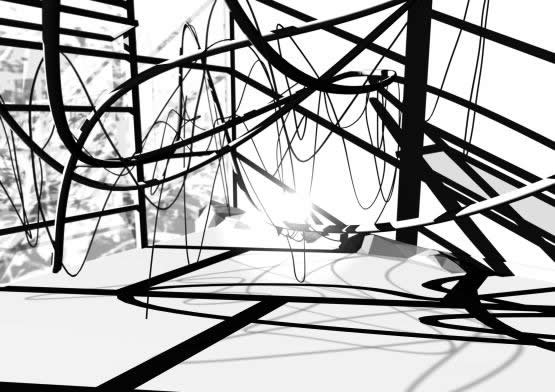The jury of the 62nd Cannes Film Festival has just bestowed a number of honours upon films screened at the festival, with the coveted Palme d'Or picked up by The White Ribbon by Austrian auteur Michael Haneke. This pleases me greatly as a fan of Haneke's work, particularly since his last film, an English-language shot-for-shot remake of his own Funny Games, was of little interest to me (I have yet to see it), partly since the original is my least favourite of his films (those who have seen it but little else of his other work may be puzzled to hear this is mainly because I find the film too 'warm'). Many have noted that the President of this year's jury, the singular Isabelle Huppert, has featured in two Haneke films, The Piano Teacher (2001) and The Time of the Wolf (2003) (winning a second Best Actress at Cannes for the former, her second after for Claude Chabrol's Violette Noziere (1978)), though many had thought this may have been a hurdle for Haneke. Few have noted, however, that this year's controversial choice for Best Actress, Charlotte Gainsbourg (whom all are obliged to point out is the daughter of Serge Gainsbourg and Jane Birkin) for Lars Von Trier's Antichrist (which frankly sounds bonkers), is not the first whose award-winning performance featured a scene of genital self-mutilation. The previous one? Huppert in The Piano Teacher.
Every film distributor would love to use an award given by the Jury (or other panels at the Festival) to help sell their film. However, there are two Cannes award-winning films which also picked up an award that was unlikely to sit alongside the Palm on the poster. The two films in question are Canadian: the 1994 FIPRESCI Prize winner, Exotica, and the 1996 Special Jury Prize winner, Crash. Apparently, both won Best Alternative Adult Film at the Adult Video News (AVN) Awards, the so-called "Oscars of porn".
Crash is, of course, David Cronenberg's adaptation of the 1973 novel of the same name by the dearly departed J. G. Ballard (much can be said about this man- I direct you in the meantime to a post by my brother). Cronenberg had already accidentally made a Ballard semi-adaptation in the form of his first feature, Shivers (1975) - think High-Rise meets Night of the Living Dead by way of a parasite that is both phallic and faecal. The form of Crash is close to that of a pornographic film, with the plot largely structured around a series of sex scenes. However, in Cronenberg's world, these sex scenes are not there for titillation- if they were they would hands down fail on that count, as the scenes are clouded in distinctly cold anti-passion. Cronenberg in fact left one sex scene out that he found to be too warm. Ballard himself admitted he would have considered his book a failure had he ever had an erection whilst writing. If Cronenberg's Crash (and it is Cronenberg's - Iain Sincliar's BFI Reader on Crash points out a Borgesian relationship between the author and auteur, Cronenberg the Menard to Ballard's Cervantes) is pornography, then it is pornography for the mind, not the phallus. On a side note, in an earlier film, Rabid, cast a pornographic actress (the also sadly recently-departed Marilyn Chambers), with a plot the porn industry may rather forget (zombie-like epidemic as metaphor for STDs).
Atom Egoyan's masterful Exotica seems on the face of it a standard erotic thriller from its central setting, the titular strip club, to its tagline ('In a world of temptation, obsession is the deadliest desire.') And yet Exotica turns out instead to be more of an elegant filmic puzzle, owing much to a European arthouse tradition. By his own admission, Egoyan structured the film like a striptease, removing layers gradually to reveal the bigger picture, eventually offering food for thought rather than arousal. Unlike Crash, Exotica has no sex scenes, the closest thing being the strip dances performed within the environment of the club. As the film progresses, these teases take on far more depth than they would in a by-numbers softcore thriller, no small thanks to a standout performance from Mia Kirshner, showing an acting maturity beyond her then 18 years (across-the-board the cast are accomplished yet underappreciated Canadian actors, including Elias Koteas, who also appears in Crash as the deranged Vaughan). At the conclusion, the viewer may well feel implicit guilt for their part in the voyeurism.
The awarding of Best Alternative Adult Film to both these films seems rather misplaced, neither one is successful pornographically, though this is because neither one strives to be. Yet, with a more naïve reading of its title, adult as in intended for adults, the winning of this prize by two intellectual filmmakers can make more sense.
